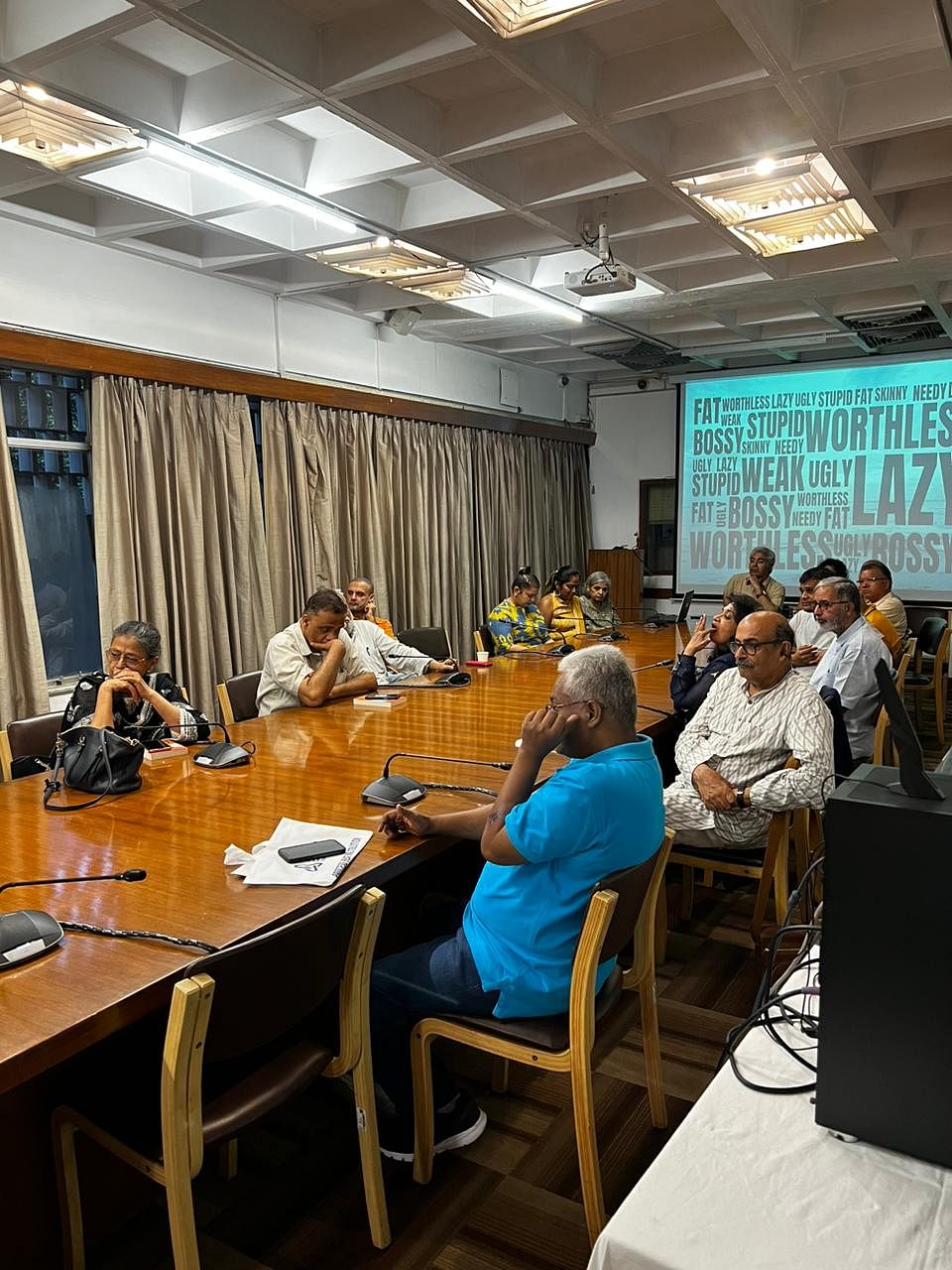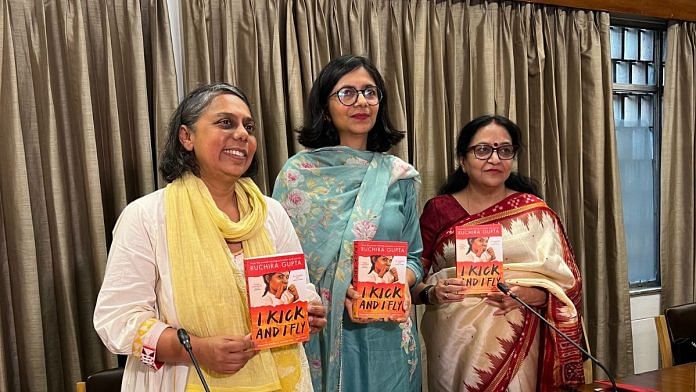Ruchira Gupta wants her debut novel, I Kick and I Fly, to become a film or a Netflix series — but not for personal fame. The Emmy Award-winning filmmaker and founder of an anti-trafficking NGO has that in spades. With her new book, Gupta wants to jolt people from their comfortable lives to really look at the horrors of human trafficking.
She tried to do the same with her first documentary The Selling of Innocents (1996), through her work with American journalist Gloria Steinem, and her NGO Apne Aap. In 2014, Hollywood actor Lucy Liu chose to make her first movie about Gupta rescuing a girl from sex trafficking in Bihar.
On a humid Thursday evening, actors and activists, judges and journalists thronged the conference room in Delhi’s India International Centre (IIC) to offer Gupta their congratulations—and insights into human trafficking.
In I Kick and I Fly, the narrator-protagonist Heera, who belongs to the Nat caste, a poor landless Hindu-Muslim community that goatherds and wrestlers and was once considered a ‘criminal tribe’ learns Kung Fu. The book explores the themes of emancipation and freedom through marital arts. Set in rural Bihar, Heera’s story is drawn from Ruchira’s own experience of rescuing women from sex trafficking and helping them find sustainable livelihoods.
As Gupta launched the book, along with Delhi Commission for Women president Swati Maliwal, “bravos” could be heard above the clapping.
Also read: Quad architect Shinzo Abe foresaw a world beyond alliances, says Jaishankar at book launch
Not really a ‘choice’
Amid the rumble and roar, Gupta and Maliwalk had to contend with the occasional mansplainer. During the Q&A session, one male audience member shared their insights about the challenges of the work. Another man expressed their misgivings about sex workers being viewed only through the lens of exploitation. What about those who choose prostitution as a job, he asked. He recounted an event he had attended where women said they were happy to be part of it.
Gupta, however, pointed out that ‘choice’ is often shrouded in trauma. She brought attention to how abuse is rampant in the profession, and the clock is always ticking for these women, who only hope to earn till they turn 30.
“Research now shows that women in prostitution have higher rates of PTSD than war veterans,” said Ruchira. It left everyone wanting to know more.
The discussion that followed was interspersed with anecdotes about Gupta’s experience of rescuing more than 20,000 women from trafficking and Maliwal’s observations from her work in Delhi.
An audience member, Sehrish Hazarika, a government consultant and an ex-student in the school Gupta studied in Kolkata asked about the events that led Gupta on this journey.
“I was hiking in Nepal when I first heard about women missing from villages there. Like a good journalist, I had to follow the story,” said Gupta.

Also read: From Galouti kebabs to the uprising of 1857—Wajid Ali Shah left an indelible mark on Indi
Shedding the trauma
The events that followed laid the foundation for Gupta’s journey as a filmmaker documenting the trafficking of minor girls. The Selling of Innocents won an Emmy in 1996 in the Outstanding Investigative Journalism category. When Gupta went back to the women whose stories she had documented, they said they hoped for a future in which no girl child is trafficked. From there Gupta drew the inspiration for her NGO Apne Aap, which works to rehabilitate victims of human trafficking.
“I began writing the book when a girl from Apne Aap won a gold medal in karate in Forbesganj, Bihar, where Apne Aap runs a hostel. Many of these girls from the red-light area of Forbesganj are now college graduates and have emerged as chefs, gas station managers, teachers, and nurses. One is even a police officer,” said Gupta with a smile.
She also talked about how she opened a hostel and introduced the girls to self-defence classes. It wasn’t easy—there were institutional hurdles, attempted kidnappings of the girls by traffickers, and societal pressure.
The self-defence sessions helped the girls move on and think beyond their horrific experiences.
“Learning self-defence taught me that I have a self-worth defending,” a girl who learned karate at Apne Aap told the activist. The NGO created a ripple effect among the girls — and Gupta got inspired to pen down the incredible tale of courage and hope, which she wants to be categorised as ‘social justice fiction’.
Ruchira’s team also played a short video at the book launch and announced a campaign titled ‘Unlabel me’ to highlight how labelling leads to discrimination. She also emphasised how children, too, should be a part of the conversation — it can empower them.
As the session drew to a close, many in the audience lingered to get a chance to talk to Gupta. She was surrounded by people asking her to sign their copy of I Kick and I Fly.
“The story describes how a smile, a nudge, the right words, and extending help to one person can change the story of an entire community. There is no bigger inspiration than this book to become activists,” said Maliwal.
(Edited by Ratan Priya)



